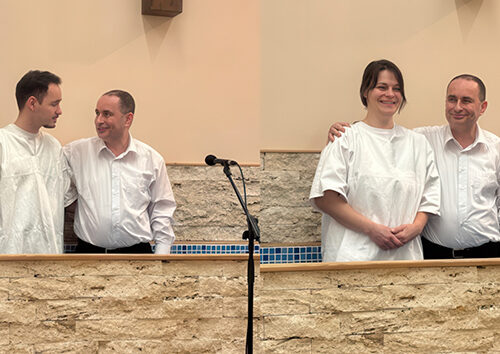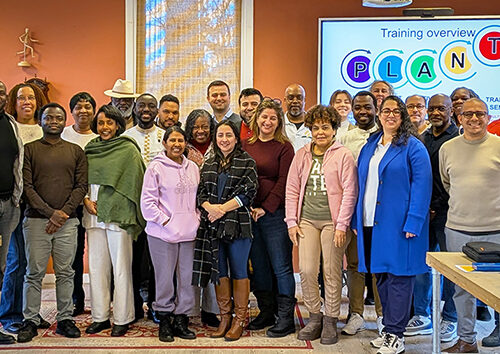21 October 2022 |St. Albans, UK [Daniel Duda]
If we want to provide reasonable and adequate answers to the questions people are asking, we first need to listen to their questions. What people around us are concerned with is determined by them, not by us! So, if we do not listen carefully, we will run the risk of answering questions nobody is asking, while ignoring what is truly bothering and mobilising people.
In the last forty years there has been a significant change in the approach to environmental issues, which in recent times have risen to the top of many scientific and political agendas. The world asks not only general questions regarding the future, but also specific questions about the environment and the future of our planet.
As Christians, and especially as seventh-day Adventists, how should we deal with these issues? Should we pay attention to them, or are they just a distraction from our important mission to proclaim the Gospel to every creature (Matt. 28:18-20)?
Is It Our Responsibility?
As Adventists, we believe that Christ’s coming is close. For this reason, many used to think we wound’t have to deal with environmental problems. Furthermore, some even used to think that the more this blue planet is destroyed, the sooner Jesus would come. They thought that such destruction would “force” Jesus to return sooner to save his children from an ecological disaster.
Such reasoning is very irresponsible for several reasons:
Firstly, we are called to be faithful stewards of God’s creation (Gen. 1:26, 28; Rev. 11:18). Secondly, these issues give us an opportunity to show practically and to a greater extent our holistic philosophy of life. The holistic Adventist approach emphasises the interdependency between mind and body -which, on a wider scale, extends to relationships between men and women, as well as people and animals. Therefore, we cannot have this holistic approach while at the same time discriminating against women, or being indifferent to the senseless plundering of the environment or the extinction of certain animal species. Thirdly, and finally, environmental issues remind us that faith cannot remain theoretical; our faith in God responds to the practical problems of life around us.
A Short Look Into History
1. A certain unwillingness in our church to look at the current global challenges of our world is, to a large extent, caused by a kind of unresolved legacy of Millerism. Millerites expected that the coming of Christ would occur between 1843 and 1844. If Christ were to come in less than a year, building brick houses, planting fruit trees, or caring for one’s teeth must necessarily have been seen as a betrayal of faith. Not bringing home the harvest from their fields, leaving secular jobs, selling all their assets and putting all their life savings and energy into preparing themselves and others for the coming of Christ were seen by these people in 1844 as a manifestation of a living faith. This was a natural consequence of their understanding of prophecies. To be interested in investing in pension benefits would be perceived as blasphemy.
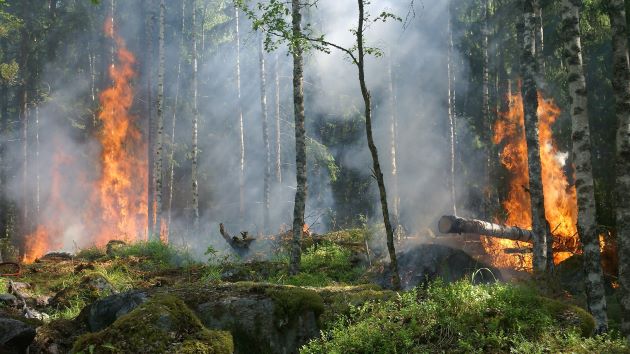
However, after the Great Disappointment, people slowly began to realise that it would be necessary to take a different approach to life. It dawned on some that their belief in Christ’s soon coming must be expressed in other ways. In the decades that followed, Adventists lived pragmatically as if Christ’s coming would happen in a maximum of a ten-year timeframe (although we never said it out loud). This attitude influenced our planning, our construction of buildings, etc. It meant that nobody thought through the possibility that the coming of Christ might not happen for some decades. For this reason, society’s (and hence the Church’s) governance must be structured and guided differently. And it slowly dawned on us that such long-term thinking and planning does not mean a denial of faith.
On the other hand, it should be emphasised that whenever in history the Church has lost sight of Christ’s second coming, it has
adversely affected her spiritual condition (Matt. 24:45-51). It is not easy to balance the two approaches. Throughout history, the Christian Church has often fallen into one or the other extreme, emphasising one side at the expense of the other.
2. Although we are believers, our normal way of thinking in relation to the world has been greatly influenced by the philosophy of the Enlightenment, which says that nature is here first of all to serve humanity and be exploited by it. But the Bible says, ‘The earth is the LORD’s, and everything in it’ (Ps. 24:1, NIV). God has not abdicated His ownership rights. According to the biblical model, man is only an administrator, not an owner. ‘For every animal of the forest is mine, and the cattle on a thousand hills. I know every bird in the mountains, and the insects in the fields are mine’ (Ps. 50:10, 11, NIV).
3. In addition, our relationship towards ecology has been affected by the soteriology (doctrine of salvation) as understood by the Protestant Reformation. According to the reformers, Jesus came to the world primarily to die for people’s sins. The essence of the Gospel was that He died for the forgiveness of our sins (so that we can go to heaven when we die). Thus we engage in evangelism, because it is about saving people from their sins. However, for many of us, it would seem strange to be involved in ecological initiatives, because they deal ‘only’ with saving blue whales, or gorillas. But the Bible shows that Jesus gave His life for the cosmos (cf. John 3:16; Eph. 1:10; 3:10; Col. 1:20). When Jesus died on the cross, He did not die just to save humanity, but His death was part of a great cosmic struggle that began long before our generation appeared on the scene, even before the first people were created.
On the cross, Jesus achieved victory over Satan and his powers. This victory means saving God’s creation from the power of Satan and evil. Christ came to frustrate the work of the devil (1 John 3:8). Biblically speaking, to receive Jesus Christ, His death and His resurrection means to do everything in our power to save people and to improve the environment in which we live.
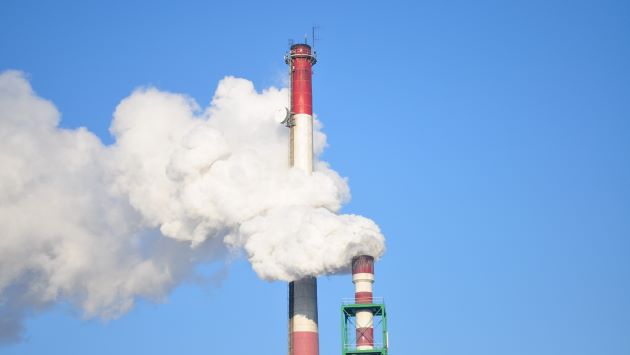
Of course, the full restoration of creation happens only when God creates new heavens and a new earth (Rev. 21). However, at His second coming Jesus will destroy those who destroy the earth (Rev. 11:18). Each one of us pollutes the planet and leaves an individual carbon dioxide footprint, so each of us individually should think about how we can and should commit to the rescue of the environment. The New Testament teaching about spiritual gifts leads us to ask how we can serve individually and collectively to help others by empowering and developing them. Likewise, our relationship to God’s creation should cause us to ask what we can do for the preservation and enhancement of the planet’s environment, both individually and as the church corporately.
We need to realise that the world we live in is changing incredibly fast. Seventy years ago, nobody talked about ecology, either in the world or in the church. People believed that the natural resources of our planet were inexhaustible. Only modern times and technology have brought the consumption of non-renewable natural resources at such an amazing rapidity that the need for new approaches has proved necessary.

Adventism and Ecology
As Adventists, we have been quite successful in emphasising the interconnectedness of the physical, mental and spiritual aspects of an
individual. Therefore, the Gospel we preach is not only about saving the ‘soul’, but is also about restoring the physical, spiritual and mental
aspects of every person. A healthy lifestyle, in which all three components are harmoniously balanced, is part of the biblical Adventist message. The time has come to include another aspect in this triangle – the relationship with the environment in which we live.
We consider it our Christian duty to inform people about the advantages of a healthy lifestyle and the consequences of various harmful foods and drug substances on their overall health. Similarly, we should consider it part of our mission to provide people with information about the harmful environmental impact of waste which does not naturally decompose, and about lifestyles which cause deterioration of the environment and the impoverishment of other people (whether nearby or on the opposite side of the planet).
When it comes to education and schooling, we make it a priority. When it comes to taking care of our health – again, we make it a
priority. We have built the largest Protestant health system in the world, even while believing in the soonness of Christ’s Advent. It follows that it is necessary to engage in saving the environment.
Thinking through our theology of creation, if we are receptive to all parts of God’s creation, it will bring us greater sensitivity and
respect for those who are on the margins of society and the church (Matt. 10:29-31).
We can perceive the Sabbath too narrowly, just as the keeping of the seventh day in which we do not work. But then we do not appreciate the entire text of the fourth commandment, which includes other people and animals. If we realise the broader message of the Sabbath year and the year of jubilee (see Lev. 25), we will find that God is also concerned with the restoration of land, even of nature.
The use of CFCs in fridges and air conditioning, as well as phosphate detergents in households, has already been taken care of by
the European Union (this remains the case – even with Brexit). I hope that the day is coming when if our church members drain the oil from the car, or ‘just’ wash it in an unauthorised place, they get at least six months of church discipline (Rev. 11:18; 14:7, 12).
Why? Because if we believe that God is the Creator of heaven and earth, the sea and springs of water, and if someone is polluting sources of groundwater, thereby ‘destroying the earth’, they definitely should be under church discipline. This should be assessed at least as seriously as dealing with your own business interests and making money on Saturday. It is a violation of the same fourth commandment.
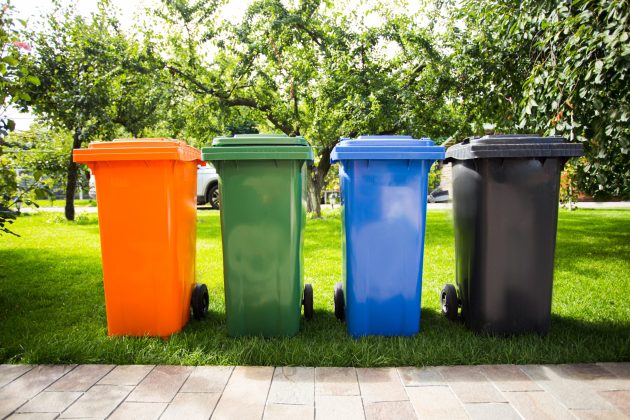
Maybe we should ask people before their baptism whether they have given up the use of PET bottles or whether they are sorting out household waste and do not throw away old paper, glass and plastic together with other waste into one rubbish container. We must do this nowadays because the (so-often criticised) government has ordered it, but unfortunately not because of our Christian conscience and understanding.
Based on our belief in the Second Coming of Jesus Christ (we have the word Adventists in the name of the Church), we know that our endeavours, efforts and actions will ultimately not save our planet. This should protect us from one-sided extremism, unhealthy fanaticism, or worshipping nature. The perfect and final solution is only the second coming of Jesus Christ, the setting up of the kingdom of God. The ecological movement does not need to be led by various extremist individuals and initiatives. Balanced and born-again followers of Jesus Christ who care about the environment in which they live can and need to do more, much more, than we do today (Rom. 8:19-21).
Never in the history of the world has the situation been as bad as it is today ecologically, and maybe morally and socially. But never in the history of the world have there been so many real children of God who are willing to be influenced by the Holy Spirit (even without knowing it) and change the way they live in this world.
Scripture reminds us that, at the end of the creation week, the Creator declared everything He had created ‘very good’ (Gen. 1:31).
God has called us to be stewards of the earth and of all creation. All who live in this world are precious in the eyes of God. If we take seriously the message that God has entrusted to us, then we will not only be faithful stewards of God’s creation, but also protectors of the environment. Our attitude towards the environment and ecology reflects the depth (or superficiality) of our spirituality.
Dr Daniel Duda serves as president of the Trans-European Division. The original version of this article was first published in the 26 March edition of British Advent Messenger (vol 125 / issue 7 26 March).
Lead photo: Pexels, Porapak Apichodilok]

